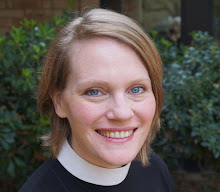This is the sermon I preached Christmas Eve 2017. I woke up this morning needing to hear these words, and I thought perhaps you do, too. Merry Christmas, Beloved. God is with us.
_________________________________________________________________________________
This is the night! This is the night! This is the night in which God put on flesh and came to dwell among us.
At the Easter Vigil I said that THAT was the night “Without tonight, Lent, Advent, Epiphany, even Christmas…without tonight, none of the rest of it matters. Without tonight, our preaching is worthless, and our faith is in vain.”
And that is true. Without the public execution of Jesus of Nazareth, would we have ever known the story of the life of the Word made flesh?
This is what I am learning: the life of Jesus is just as redemptive as his death.
Growing up, I never understood why Christmas was such a big deal. Looking at it with a child’s eyes, I thought that if Easter was the festival upon which our faith hangs, then why did we make such a much bigger deal out of Christmas? And furthermore, why is Christmas inflated to be larger than it actually is? We don’t tend to celebrate Christmas during the 12 days of Christmas (which begin on the 25th, by the way). And secular culture has nearly overtaken our Christmas celebrations…there were decorations in stores after Halloween this year. Christmas creeps earlier and earlier into the year. Why is Christmas so important to so many people who otherwise are not observant? And why are we so willing and impatient to get to Christmas? Even in this congregation, where we intentionally observe Advent…the time of reflection and repentance and waiting…we sang this morning Christmas hymns! And I helped put out the poinsettias on Advent 3…jumping the liturgical gun just a bit.
But what I see with adult eyes (I think) is that the world is weary and aching and still desperately lost in deep deep darkness. And we need to be reminded that God chose and God chooses to live among us. And we cling to the joy of Christmas, pulling it closer and closer in the ways we know how…hoping that the the right dress, best music, movies from our childhoods, Grandma’s nut bars, and find the right gift will bring that joy to us. Will mend our broken hearts. Will fill the emptiness which can be so very overpowering…especially when the world seems dim, the news seems bleak, and we recognize that we don’t have the power to change what needs changing on our own.
Being human is very, very hard. We have to be kind when we don’t want to be. We have to suffer real physical pain. We have to suffer real emotional pain when marriages don’t work out, when our families leave us because of death or separation, when when we feel utterly alone.
But God chose to dress in our bodies and live among us. God chose to come to the world in the most vulnerable way. As a newborn, capable of not much more than moving his bowels and weeping with cold or hunger or fright. A newborn with that super soft-spot on the top of his head and that sweet smell of milk under his chin. A newborn with starfish hands and those sweet little puppy sounds. Just the way we each come into this world. Naked…but hopefully, with some other human to hold us, and certainly not alone.
And because God chose to become truly human we can rest assured that God knows very real physical pain. God knows the pain of the separation of family. God knows what it means to “go off to be alone”…God did it in the humanness of Jesus time and again. Jesus wept. Jesus raged. Jesus ate. Jesus loved.
God didn’t become truly human because God needed to know all of these things. God became truly human because WE need to know that God knows all these things.
And so as God has done since the very beginning, God took something simple and plain and ordinary and made it extraordinary.
God worked through a young woman, a terrified carpenter, a tired old donkey, some smelly shepherds and their even smellier sheep, an innkeeper, and even the most vulnerable…an impoverished, racially and ethnically, and religiously minority newborn, floppy-necked baby …took those ordinary people (and animals) and made the most extraordinary thing happen.
God poured Godself into our brokenness and brought healing to the whole world through the person of Jesus.
And, that, my friends is the very God news. On this night, love takes flesh and lives among us.
Amen.








